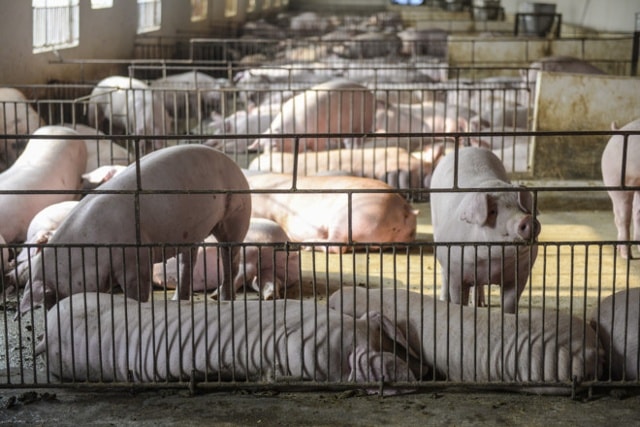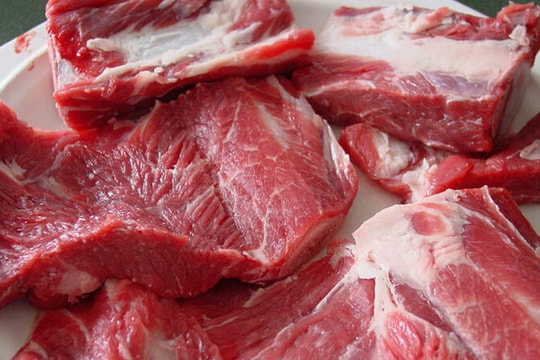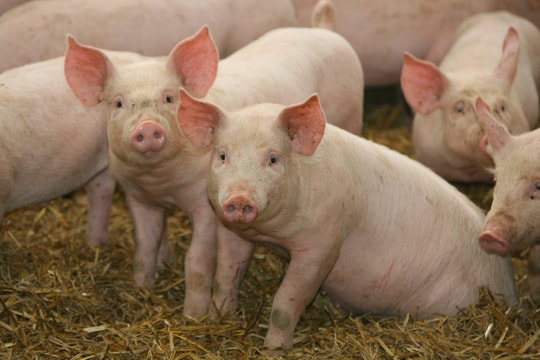After July 30, pork without traceable origin will not be sold at wholesale markets.
From July 30, pork without traceable origin will not be sold at the two wholesale markets of Hoc Mon and Binh Dien in Ho Chi Minh City, said Vice Chairman of the Ho Chi Minh City People's Committee Tran Vinh Tuyen.
 |
| Photo source Internet |
Hoc Mon and Binh Dien are two main wholesale markets supplying pork to the whole of Ho Chi Minh City.
According to Mr. Tuyen, according to the roadmap of Ho Chi Minh City, starting from September 15, pork without traceable origin will not be sold in all channels in Ho Chi Minh City and this will be seriously implemented by the city. In the immediate future, the city will tighten the source of pork brought into wholesale markets. After July 30, other types of food without traceable origin will also not be sold in wholesale markets.
“Food with a real origin is not necessarily safe food, but having an origin helps us control it,” Mr. Tuyen emphasized.
Mr. Tuyen also requested the People's Committees of 24 districts to send detailed plans on cleaning up spontaneous markets and markets encroaching on sidewalks by July 15 at the latest. According to him, these markets are the source of dirty and dangerous food.
This type of market is often concentrated in export processing zones, industrial parks, and labor areas where many workers and poor laborers live; accordingly, the Department of Industry and Trade of Ho Chi Minh City needs to plan and increase mobile stores and price-stabilized goods in those areas to ensure meeting the needs of workers and poor laborers.
“According to the plan of the Ho Chi Minh City People’s Committee, by June 2018 at the latest, there will be no more spontaneous markets or markets encroaching on sidewalks in the city. This is a difficult task but must be resolutely done,” said Mr. Tuyen.
Mr. Tuyen also directed that illegal and unlicensed slaughtering and the production of counterfeit goods must be stopped as soon as possible. If this situation continues, the district and county chairmen and vice chairmen in charge must take responsibility.
Also at the meeting, Mr. Tuyen requested the Ho Chi Minh City Food Safety Management Board to review regulations, research, and consider the placement of signs and seals saying “stores and establishments that do not meet food safety standards” for production and business establishments and food stores that do not meet food safety standards. He said that this would be more effective, more deterrent, and easier for consumers to recognize than issuing food safety certificates. In fact, issuing food safety certificates to production and business establishments is something that has always been done.
Mr. Tuyen also emphasized that during the regular food safety inspection process, the inspection time should be made public and transparent for businesses and production and trading establishments to know. This is because this inspection is not only for the purpose of fining but more importantly for discipline and reminder. In addition, public inspection is also to avoid the situation where inspectors receive "envelopes" to ignore violations.
Talking about implementing Mr. Tuyen's instructions, Ms. Huynh Thi Kim Cuc, Deputy Head of the Ho Chi Minh City Food Safety Management Board, said that these are difficult tasks but we must try and resolutely carry them out.
According to the Ministry of Agriculture and Rural Development Information Portal
| RELATED NEWS |
|---|



